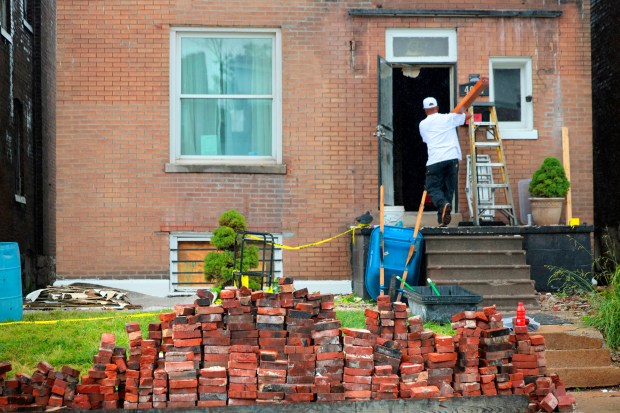While thick clouds and rainfall obscured most of the Chicago area Sunday, experts said weather conditions will not hinder those looking to see the total solar eclipse Monday in Illinois.
“Skies should be mostly clear, with little to no clouds obstructing the view in the Chicago metro area,” Rafal Ogorek, a meteorologist at the National Weather Service in Chicago, said. “Rainfall is expected to end in the evening.”
While Chicagoans will experience about 94% eclipse coverage, parts of southern Illinois and central Indiana will be in the path of totality, where the moon will completely block the sun.
“Between Chicago and the path of totality there shouldn’t be any really notable weather impacts,” Ogorek said. “There might be a few more clouds down south, closer to the path of totality.”
Justin Gibbs, a forecaster at the National Weather Service in Paducah, Kentucky, said while clouds are expected in southern Illinois, it is likely to be “high-level” cloud cover.
These atmospheric clouds are generally less opaque and are not expected to obstruct the view of the eclipse. They are harder to predict than lower-level clouds, Gibbs said, but should not pose a weather-related impediment on the ground.
“They should be pretty thin,” Gibbs said. “We may get by with more clear skies than not, but we haven’t really seen anything to make us feel like there could be a miss in southern Illinois.”
The National Oceanic and Atmospheric Administration’s Space Weather Prediction Center said the sun’s corona, the outermost layer of the Sun’s atmosphere, was visible during the eclipse in 2017.
The center advised viewers to look out for the Sun’s corona, the possibility of a coronal mass ejection –– a large expulsion of plasma and magnetic field from the corona –– or a massive solar prominence –– loops of plasma extending outward from the sun’s surface –– during the event Monday.




